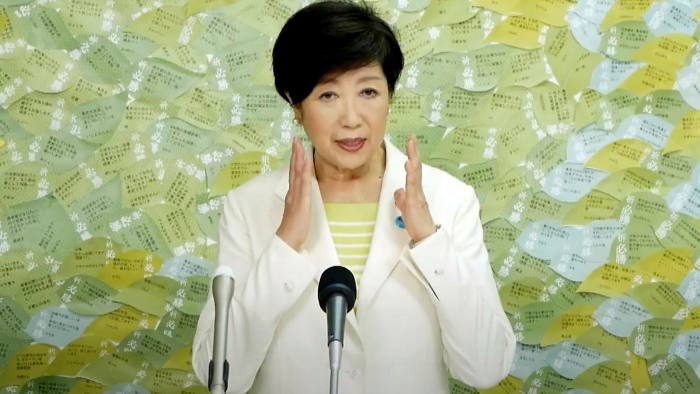 (時時刻刻)GOTO停止、退けた官邸 東京発着、65歳以上・基礎疾患「自粛を」
(時時刻刻)GOTO停止、退けた官邸 東京発着、65歳以上・基礎疾患「自粛を」
Governor Koike, All the 65 years or older people needs to prevent from going out too much
Regarding the government's tourism support measure "Go To Travel," Governor Yuriko Koike of Tokyo officially called on the people aged 65 and over and those with underlying illnesses to temporarily refrain from using the trips to and from Tokyo. The only thing that was limited to "self-restraint" was consideration for the exhausting economy, but some experts questioned the effectiveness of infection prevention.
"The economic scale of Tokyo is extremely large. We have agreed (with the government) that we should refrain from doing so, emphasizing that the ripple effect on the whole country is also very large."
Governor Yuriko Koike of Tokyo emphasized that on the afternoon of the 2nd over "Go To Travel". Governor Koike met with Prime Minister Yoshihide Suga on the evening of the previous day and asked the government to call on the elderly aged 65 and over and those with underlying illnesses to temporarily refrain from using the portion to and from Tokyo.
The initial proposal of the capital was "pause" or "self-restraint". However, the government has decided that it is difficult for travel procedures to exclude only elderly people and those with underlying illnesses, which may cause confusion. "The medical history is the greatest personal information. It is impossible to give it out," said an official at the official residence, and he refused to suspend it.
The cancellation fee for the target person is being considered to be borne by the government if requested on the 1st to 13th.
Governor Koike, who had insisted that "the government should make a decision", showed signs of "softening" on November 28, saying "I will consider the response by looking at the response from the government". The number of seriously ill people in Tokyo reached 67, the highest number (at that time) since the state of emergency was lifted. According to a person concerned with the city, executives will discuss the response within the agency this weekend. "In order to prevent the spread of infection in a short period of time, we should stop traveling for all citizens of Tokyo," he said.
However, what was in the minds of Governor Koike and other Tokyo executives was the risk of further cooling the economy. There was concern that if all generations were stopped, it would be possible to catch up with tourists in Tokyo, who are in trouble. After discussing the weekend return, the plan was presented to the government to limit the target to elderly people aged 65 and over and people with underlying illnesses, who are likely to become seriously ill.
On the other hand, there was a concern on the government side that a huge amount of paperwork would be required to compensate for cancellation fees if all citizens of Tokyo were targeted. Finally, on December 1st, the Japan Tourism Agency, which has jurisdiction over "Travel," contacted the Tokyo side saying, "There is no problem with only elderly people aged 65 and over and people with underlying illnesses." From this afternoon, Governor Koike and Prime Minister Suga had intermittent direct telephone discussions and were able to meet at the Prime Minister's Office in the evening. In a request given to the Prime Minister, Mr. Koike requested that a similar request for self-restraint be issued on a nationwide scale.
However, Hokkaido and Osaka Prefecture have suspended the use of travel for trips to Sapporo and Osaka, and are calling on all citizens to refrain from traveling to and from both cities. In response to this request for self-restraint, there are voices from within the Tokyo Metropolitan Government that question the effect. One executive said, "It makes no sense to target only the elderly. Many infected people are in their teens and thirties, and they end up calling young people the wrong message, which is extremely half-hearted." Criticize.
Source: https://digital.asahi.com/articles/DA3S14717648.html?pn=3
 English
English Japan
Japan
